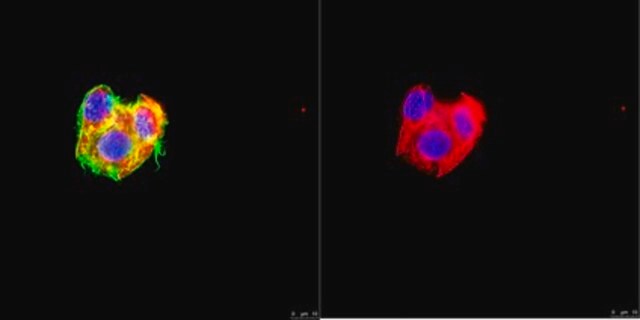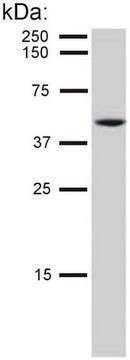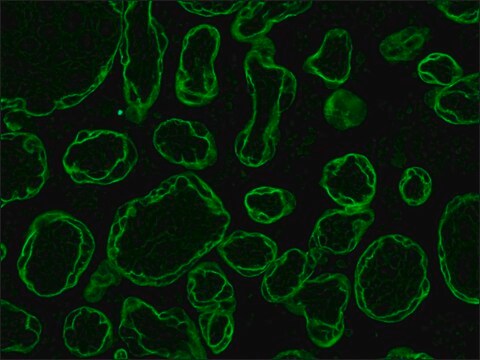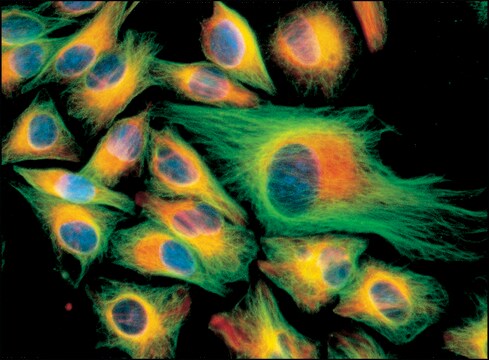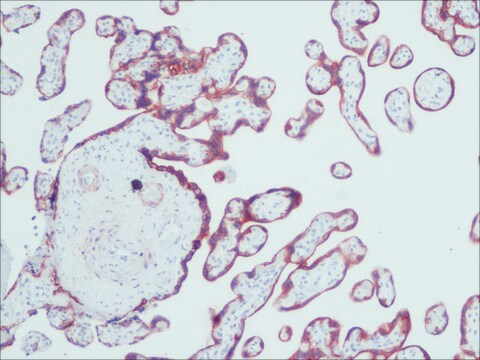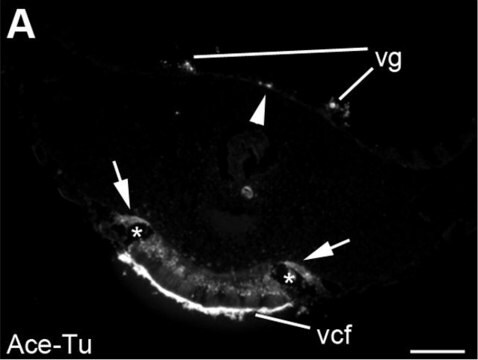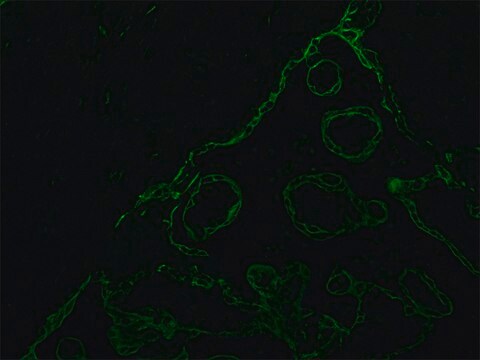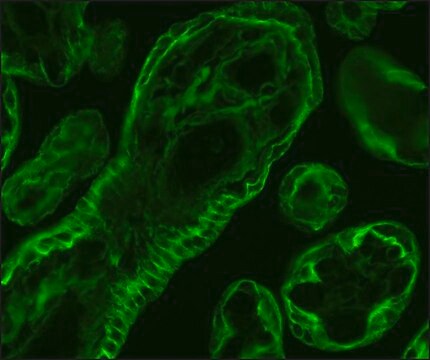C5301
Monoclonal Anti-Cytokeratin Peptide 8 antibody produced in mouse
clone M20, ascites fluid
Sinonimo/i:
Anti-CARD2, Anti-CK-8, Anti-CK8, Anti-CYK8, Anti-K2C8, Anti-K8, Anti-KO
About This Item
Prodotti consigliati
Origine biologica
mouse
Livello qualitativo
Coniugato
unconjugated
Forma dell’anticorpo
ascites fluid
Tipo di anticorpo
primary antibodies
Clone
M20, monoclonal
PM
antigen 52 kDa
contiene
15 mM sodium azide
Reattività contro le specie
feline, human, rabbit, canine, bovine
tecniche
immunohistochemistry (frozen sections): suitable
indirect immunofluorescence: 1:200 using frozen sections of human or animal tissue
western blot: suitable
Isotipo
IgG1
N° accesso UniProt
Condizioni di spedizione
dry ice
Temperatura di conservazione
−20°C
modifica post-traduzionali bersaglio
unmodified
Informazioni sul gene
human ... KRT8(3856)
Descrizione generale
Specificità
Immunogeno
Applicazioni
- immunofluorescence microscopy
- immunohistochemistry
- dot blotting
- protein preparation from bovine epithelial cells
- immunofluorescence
- western blotting
Azioni biochim/fisiol
Esclusione di responsabilità
Non trovi il prodotto giusto?
Prova il nostro Motore di ricerca dei prodotti.
Raccomandato
Codice della classe di stoccaggio
10 - Combustible liquids
Punto d’infiammabilità (°F)
Not applicable
Punto d’infiammabilità (°C)
Not applicable
Scegli una delle versioni più recenti:
Possiedi già questo prodotto?
I documenti relativi ai prodotti acquistati recentemente sono disponibili nell’Archivio dei documenti.
Il team dei nostri ricercatori vanta grande esperienza in tutte le aree della ricerca quali Life Science, scienza dei materiali, sintesi chimica, cromatografia, discipline analitiche, ecc..
Contatta l'Assistenza Tecnica.